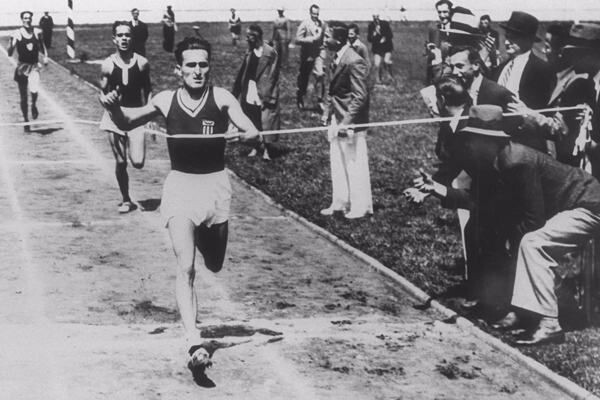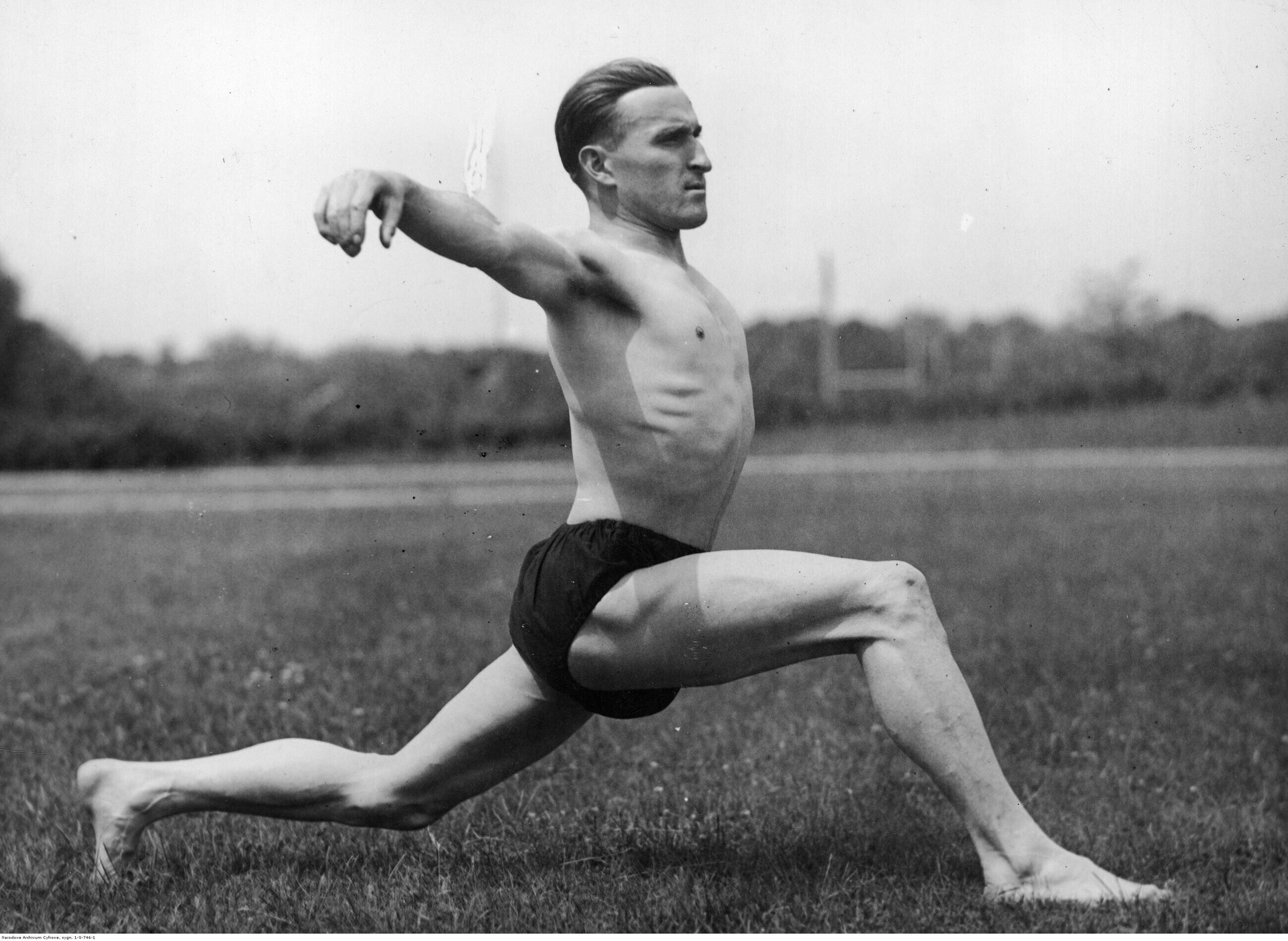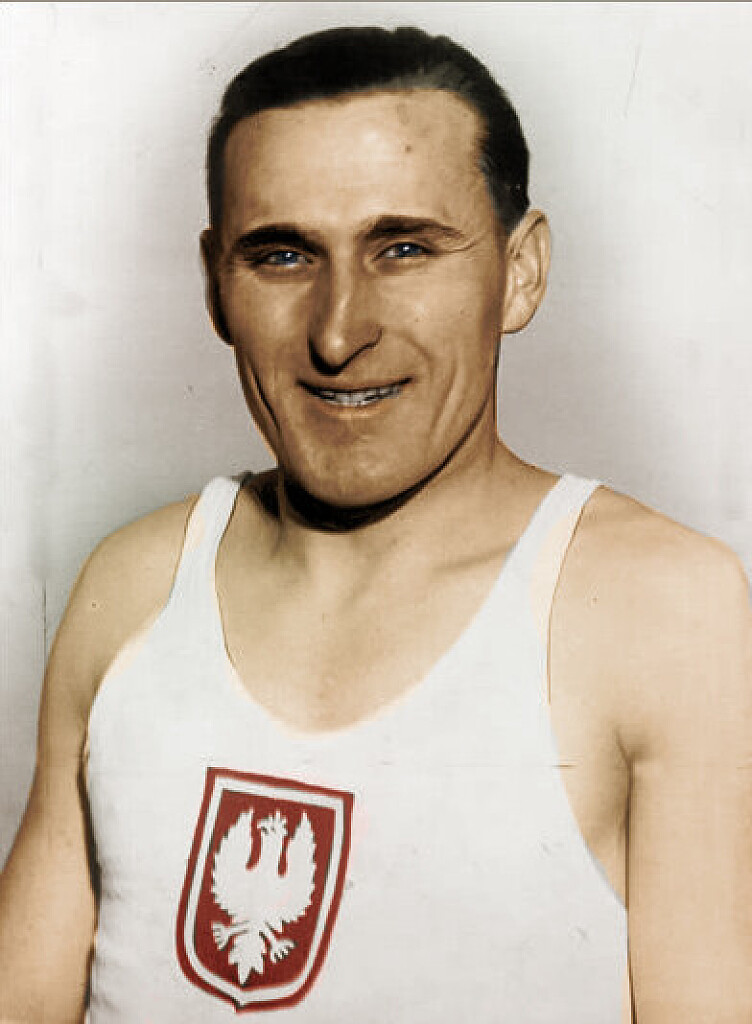Running News Daily
Running News Daily is edited by Bob Anderson. Send your news items to bob@mybestruns.com Advertising opportunities available. Train the Kenyan Way at KATA Kenya and Portugal owned and operated by Bob Anderson. Be sure to catch our movie A Long Run the movie KATA Running Camps and KATA Potato Farms - 31 now open in Kenya! https://kata.ke/
Index to Daily Posts · Sign Up For Updates · Run The World Feed
Remembering Kusocinski's athletics feats and heroic struggle
It was 90 years ago today that Janusz Kusocinski ran his way into the world record book.
Already a prolific national champion in his homeland, at distances ranging from 800m to 10,000m, the 25-year-old Pole made a name for himself at a global level when he crossed the line in an international 3000m race in Antwerp, Belgium, ahead of John Fellowes of the USA in 8:18.8.

“Kusy,” as the popular Warsaw gardener was known to friends and the wider public in Poland, eclipsed one of the enduring global marks set by the finest of all the formidable Flying Finns.
The world record for 3000m had belonged to the peerless Paavo Nurmi for six years. The nine-time Olympic gold medallist had clocked 8:20.4 in Stockholm in 1926.
To prove it had been no fluke, 10 days later – on 29 June 1932 – Kusocinski claimed another of Nurmi’s world records. On that occasion, he smashed it by 13 seconds, his 19:02.6 for 4 miles obliterating Nurmi’s 1924 figures of 19:15.6.
First non-Finnish winner
A month later, Kusocinski enjoyed his finest half an hour in track and field.

Running for his country in the Los Angeles Coliseum on 31 July, he fought a nip and tuck battle with Finn Volmari Iso-Hollo for 24 laps of the 1932 Olympic 10,000m final.
Iso-Hollo led by a metre going into the final lap but then Kusocinski sprinted clear before slowing to a jog and still winning by 1.1 seconds. His time, 30:11.4, shattered the Olympic record Nurmi had established in Amsterdam four years previously: 30:18.8.
In succeeding Nurmi, Kusocinski became the first non-Finnish winner of the Olympic 10,000m crown. He was the only non-Finn to win the coveted Blue Riband of distance running until Emil Zatopek in London in 1948.
For Iso-Hollo, compensation came seven days later in the form of the 3000m steeplechase gold medal. The Finnish typesetter would have claimed the world best too had the stand-in trackside lap-counter not been distracted by the decathlon pole vault, allowing the field to complete an extra circuit of the track.
Iso-Hollo went on to win another steeplechase gold, plus a 10,000m bronze medal, in front of Adolf Hitler and the Nazi regime at the 1936 Olympics in Berlin.
Resistance hero
Kusocinski proceeded to etch his name into national folklore as a fearless fighter against the Nazi occupation of his homeland.
When Hitler’s troops invaded Poland in September 1939, Kusocinski volunteered for the Polish Army and was drafted into the machine gun company as a corporal in the Second Battalion of the 360 Infantry Regiment. In the fight to defend Warsaw, he was wounded twice and was awarded the Cross of Valour.
After the country fell to Nazi Germany, he worked ostensibly as a waiter at the Red Rooster Bar in Warsaw while secretly operating as a member of the underground resistance movement known as the Wolves, using the pseudonym Prawdzic.
Kusocinski was arrested by Gestapo officers at the gate of his house in Warsaw on 28 March, 1940. He was interrogated and tortured at Gestapo headquarters but refused to reveal the names of fellow resistance members.
On the night of 20-21 June, he was transported to Palmiry on the outskirts of Warsaw and executed in Kampinos Forest as part of what the Nazis called Operation AB, an attempt to exterminate all Polish intelligence operatives.
Nine decades on, the name of Janusz Kusocinski, world record-breaker, Olympic champion and national hero lives proudly on in Poland.
Scores of streets and primary schools throughout the country carry his name. So does the Janusz Kusocinski Memorial meeting, which celebrated its 68th edition in Chrozow on 5 June this year and is part of the World Athletics Continental Tour Gold series.
Vladimir Kuts took part in the inaugural event in 1954 and meeting records dating back to the 1970s are held by greats such as Alberto Juantorena (1:43.66 for 800m), Irena Szewinska (49.75 for 400m) and Bronislaw Malinowski (8:21.2 for the 3000m steeplechase).
An athlete by chance
Kusocinski was born in Warsaw in 1907, the son of a railway clerk. Armed conflict took its toll on his family when he was a child. His eldest brother, Zygmunt, was killed in France in World War I. Another brother, Tedeusz, was a casualty of the Polish-Bolshevik War in 1920.
In his youth, Janusz’s first sporting love was football. He played as a dashing forward for various clubs in Warsaw.
He became an athlete by accident. In 1925, his sports club RKS Sarmata was a relay runner short for a workers’ holiday meeting. Kusocinski agreed to stand in and helped the Sarmata team to victory.
The following year he started competing as an 800m and 1500m runner and came under the wing of the club’s celebrated track and field coach: one Aleksander Klumberg.
Klumberg became Poland’s national athletics coach between 1927 and 1932. Back in 1922, the native Estonian had become the first official holder of the decathlon world record after posting 7485.61 points in Helsinki. In 1924 he had taken the decathlon bronze medal at the Paris Olympics, behind Harold Osborn and Emerson Norton of the USA.
The young Kusocinski thrived under Klumberg’s regime of intense interval training, winning the Polish 5000m and cross country titles in 1928. His running career was interrupted by a year of national service in the Polish Army but he was stronger upon his return, capturing national titles at 800m, 1500m, 5000m and cross country leading up to his annus mirabilis in 1932.
He represented Poland at the inaugural European Championships in Turin in 1934, placing fifth in the 1500m and taking silver in the 5000m behind Roger Richard of France.
Kusocinski hung up his racing spikes after returning from Italy but dusted them off to win the Polish 10,000m title in 1939.
By that time, he had moved on from gardening to become a PE teacher, coach and then a successful journalist, rising to editor-in-chief of Kurier Sportowy.
Then came the Nazi invasion, and the heroic struggle and tragedy that followed.
In 2009, Kusocinski was posthumously awarded the Commander’s Cross with Star of the Order of Polonia Restituta - “for outstanding contribution to the independence of the Polish Republic, and for sporting achievements in the field of athletics.”
by Simon Turnbull (World Athletics)
Login to leave a comment




